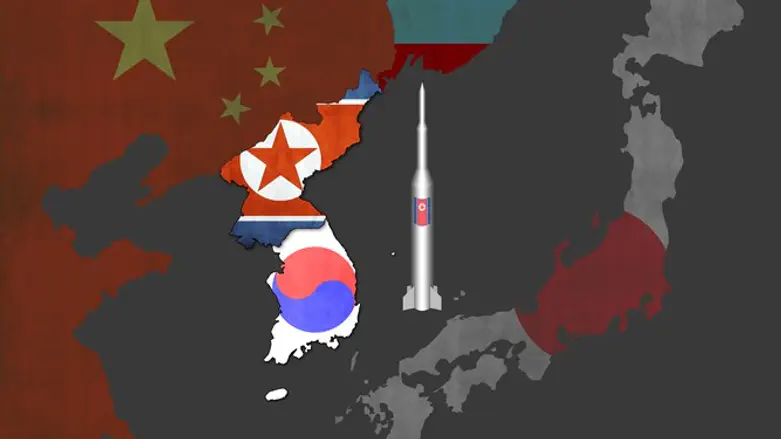
Former White House official Victor Cha, who since June 2017 has been US President Donald Trump's choice for ambassador to South Korea, is no longer being considered for the position, US officials reported Tuesday.
"The White House has moved on to other potential candidates," one US official said.
Cha, a Korean-American, served as the White House National Security Council's Asian Affairs Director, as well as deputy head of former President George W. Bush's delegation to North Korea.
He had "policy disagreements" with the Trump administration regarding whether a "limited strike" on North Korea would be worth the risk, the Washington Post reported.
According to Cha, a military strike on North Korea may escalate into a catastrophic war claiming hundreds of thousands of American lives. Last July, Cha called for a diplomatic approach and insisted China play a central role in negotiations.
In a Washington Post op-ed, Cha wrote, that if it is not stopped, North Korea will "build an arsenal with multiple nuclear missiles meant to threaten the US homeland and blackmail us into abandoning our allies in Asia." This, he said, will "inspire other rogue actors who want to undermine the U.S.-backed postwar order."
However, Cha maintains that the solution to these issues is not a preventive military strike, even if some people believe that fighting a war against North Korea would be a "risk worth taking."
"A strike (even a large one)," he wrote, "would only delay North Korea’s missile-building and nuclear programs, which are buried in deep, unknown places impenetrable to bunker-busting bombs. A strike also would not stem the threat of proliferation but rather exacerbate it, turning what might be a North Korean moneymaking endeavor into a vengeful effort intended to equip other bad actors against us."
"If we believe that Kim is undeterrable without such a strike, how can we also believe that a strike will deter him from responding in kind?"
Cha pointed out that there are 230,000 US citizens in South Korea, and another 90,000 in Japan. All of these, he said, would have to "hunker down until the war was over." And those US citizens in South Korea, he said, would have no missile defense systems to protect them against North Korean missiles.
Instead of a strike, Cha believes that an "alternative coercive strategy" would be "likely to deliver the same potential benefits as a limited strike, along with other advantages, without the self-destructive costs." This "alternative coercive strategy" would include tightening UN sanctions on North Korea and strengthening the alliances, including military and intelligence, between the US and Japan and South Korea.
However, it would also include building a "maritime coalition" around North Korea with Japanese, South Korean, and US assets, and allowing China and Russia to "face the consequences if they allow North Korean proliferation across their borders."
In the last part of his plan, Cha admits that "force will be necessary to deal with a North Korea if it attacks first, but not through a preventive strike that could start a nuclear war."
Cha admits that all the options are "lousy" and "no strategy is perfect" but insists his strategy will deter Pyongyang from "rash actions" and "does not risk hundreds of thousands of American lives."
Meanwhile, in 2013, The New York Times reported that North Korea will "sell anything they have to anybody who has the cash to buy it" - including nuclear weapons.
North Korea has clear ties to Iran, and has supplied various terror organizations with both conventional and biological weapons. It is also believed that Syria's nuclear reactor - destroyed years ago by Israel - was built by North Korea and financed by Iran.
On Tuesday, CIA Director Mike Pompeo warned that North Korea's missiles may be able to strike the US mainland "in a handful of months."
